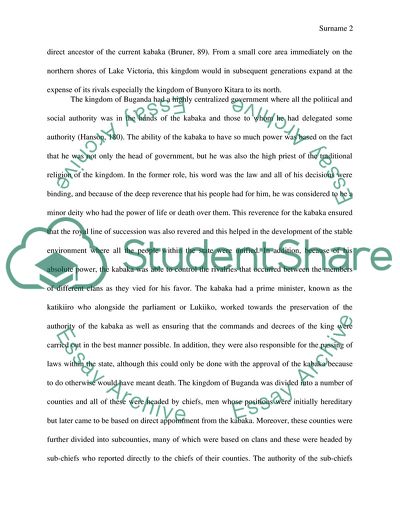Cite this document
(The Kingdom of Buganda Essay Example | Topics and Well Written Essays - 2500 words, n.d.)
The Kingdom of Buganda Essay Example | Topics and Well Written Essays - 2500 words. https://studentshare.org/history/1825736-the-kingdom-of-buganda
The Kingdom of Buganda Essay Example | Topics and Well Written Essays - 2500 words. https://studentshare.org/history/1825736-the-kingdom-of-buganda
(The Kingdom of Buganda Essay Example | Topics and Well Written Essays - 2500 Words)
The Kingdom of Buganda Essay Example | Topics and Well Written Essays - 2500 Words. https://studentshare.org/history/1825736-the-kingdom-of-buganda.
The Kingdom of Buganda Essay Example | Topics and Well Written Essays - 2500 Words. https://studentshare.org/history/1825736-the-kingdom-of-buganda.
“The Kingdom of Buganda Essay Example | Topics and Well Written Essays - 2500 Words”. https://studentshare.org/history/1825736-the-kingdom-of-buganda.


